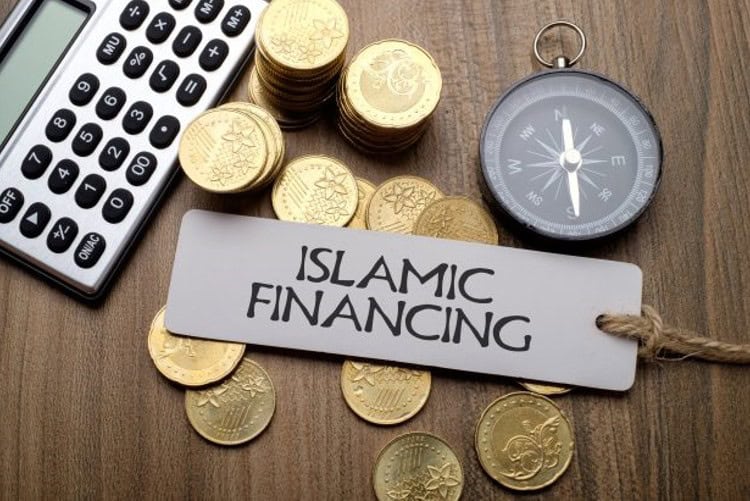by Dr. Ildus Rafikov
In the vast landscape of human thought, the wisdom of avoiding what is harmful or misleading has long been a guiding principle across cultures. The Qur’an emphasizes this approach in several instances, including the ayah: “And do not follow that of which you have no knowledge. Indeed, the hearing, the sight, and the heart—about all those [one] will be questioned” (Surah Al-Isrā’, 17:36). This ayah embodies the essence of via negativa, a philosophical approach that focuses on defining things by what they are not, rather than what they are.

Islamic thought has long emphasized the importance of avoiding harm and promoting benefits as an essential part of Islamic jurisprudence. In fact, it is one of the major principles of the Shari’ah (jalb al-maṣāliḥ wa dar’ al-mafāsid). This principle is deeply rooted in Islam and is deduced from the Qur’an and the Sunnah. Moreover, the concept of tawhid (Oneness of God) maintains the absolute uniqueness and incomparability of Allah. The Qur’an states, “There is nothing like unto Him” (Al-Shura, 42:11) and “He neither begets, nor is He begotten” (Al-Ikhlāṣ, 112:3), highlighting the use of negation to affirm the unique nature of Allah.
In the social sciences, via negativa can serve as a methodological tool to identify and avoid practices detrimental to individuals and society. For example, in Islamic economics, the focus often lies on eliminating riba (usury) and gharār (extreme uncertainty). The modern financial system, driven by speculation and zero-sum games, exemplifies what Islamic economics seeks to avoid. Speculation, with its high risks and potential for significant losses, often benefits a small group of large corporate players while leaving the majority to bear the burden of economic instability.
However, Islamic economics faces challenges in its attempt to ‘Islamize’ conventional economics. The field must develop its own methodology and framework, rather than merely adapting mainstream models. This requires a deep understanding of the Qur’anic principles and their application in contemporary economic contexts. By negating harmful practices and guiding towards justice, righteousness and awareness of God, Islamic economics promotes a system that is more equitable, sustainable, and aligned with the ethical principles of fairness and justice. Design and application of a comprehensive methodology and framework for economic phenomena studies must be the priority for Islamic higher educational institutions and policy makers in the Muslim world.
The 2008 financial crisis starkly reminds us of the dangers inherent in speculative practices. The crisis wiped out approximately $19.2 trillion of household wealth in the United States alone, and millions of people lost their homes and jobs. Meanwhile, major financial institutions, deemed “too big to fail,” were bailed out with taxpayer money, exacerbating wealth inequality and eroding public trust in the financial system. By negating such practices, Islamic economics promotes a system that is more equitable, sustainable, and aligned with the ethical principles of fairness and justice.
In the realm of economics and finance, the principle of via negativa can be a powerful tool for promoting ethical practices and avoiding the excesses of speculative behavior. One of the key insights I gained from reading Nassim Nicholas Taleb’s works, particularly Antifragile, is recognizing that the modern financial system is fraught with risks that are often hidden or underestimated. As of recent estimates, global debt has soared to over $300 trillion, far exceeding the global GDP of around $100 trillion. Even more staggering is the size of the global derivatives market, which some estimates place at over $1 quadrillion. These figures illustrate the massive scale of financial speculation and the potential for systemic risk. Islamic finance, despite numerous current challenges, with its emphasis on risk-sharing and the prohibition of interest (ribā), offers a practical example of how via negativa can be applied to create a more stable and just financial system. Nevertheless, there are still many challenges in the industry that need to be addressed jointly by academia, the industry, and policy makers.
The principle of via negativa extends beyond economics and finance. In medicine, for example, the Hippocratic Oath’s directive to “do no harm” reflects a via negativa approach, where the avoidance of harmful treatments or procedures takes precedence over the pursuit of potential benefits. According to the World Health Organization, medical errors are responsible for over 3 million deaths globally each year. This figure highlights the importance of avoiding harmful interventions and the critical need for rigorous safety standards in healthcare. Similarly, the principle of via negativa can be applied in many other theoretical and applied fields, such as engineering, architecture and education. For example, in engineering, via negativa is applied through practices like Failure Mode and Effects Analysis (FMEA) and lean manufacturing, where potential failures and waste are eliminated to enhance safety and efficiency. In architecture, the principle guides the design of earthquake-resistant structures by removing vulnerable elements and promotes passive design strategies that minimize reliance on energy-intensive systems, leading to safer, more sustainable, and efficient buildings. In education, schools can apply this principle by simplifying curricula, which can be done via removing non-essential and overly complex content to focus on essential concepts and objectives to promote deeper understanding and critical thinking.
While via negativa is a valuable tool, it cannot be used alone to solve complex problems. Scholars, especially in Islamic studies and social sciences, should use a comprehensive methodological toolbox that already includes this principle. One such toolbox is advocated by Jasser Auda and the Maqasid Institute, emphasizing purposefulness, connectivity, and holism in the form of the New Maqasid Methodology. This approach integrates the Quran and Sunnah with contemporary knowledge, encouraging a comprehensive understanding of reality. By focusing on the objectives of the Qur’an and the Sunnah, the Maqasid Methodology provides a framework for addressing modern challenges in a holistic manner, including the emphasis on commands, prohibitions, and universal laws well connected with, inter alia, concepts, objectives, and values.
My personal academic journey began with a deep fascination with the Qur’an, which guided me through my studies at the International Islamic University Malaysia (IIUM). During my time there, I had the privilege of engaging with many esteemed scholars and benefiting from the university’s extensive library, which greatly supported my undergraduate and postgraduate studies. A pivotal influence in my academic path was Jasser Auda’s book Maqasid Al-Shariah as Philosophy of Islamic Law, which introduced me to the field of Maqasid Al-Shariah studies and shaped my understanding of Islamic legal philosophy. Additionally, the works of Nassim Nicholas Taleb, particularly Fooled by Randomness, Black Swan, and Antifragile, profoundly impacted my thinking. Taleb’s exploration of the limitations of human knowledge, significance of uncertainties and the importance of avoiding unnecessary risks resonated deeply with my experiences, both as a trader and an academic.
The principle of via negativa offers a unique and valuable perspective on decision-making, ethics, and knowledge in both spiritual and worldly contexts. By focusing on what should be avoided rather than what should be pursued, via negativa encourages a more cautious and reflective approach to the challenges we face in life and society. Whether in theology, economics, finance, medicine, engineering, or education, this principle provides a practical framework for navigating the complexities and uncertainties of the modern world. However, it is essential to complement this approach with holistic methodologies that embrace the full spectrum of divine wisdom and human experience.
References
Al-Raysuni, A. (2005). Imam Al-Shatibi’s Theory of the Higher Objectives and Intents of Islamic Law. International Institute of Islamic Thought.
Auda, J. (2010). Maqasid Al-Shari’ah as Philosophy of Islamic Law: A Systems Approach. Islamic Book Trust & International Institute of Islamic Thought.
Auda, J. (2021). Re-envisioning Islamic Scholarship: Maqasid Methodology as a New Approach. Claritas Books.
Chae, B. G., & Zhu, R. J. (2015). Why a messy workspace undermines your persistence. Harvard Business Review. Retrieved from https://hbr.org/2015/01/why-a-messy-workspace-undermines-your-persistence
Maverick, J.B. (February 2024). “How Big is the Derivatives Market?” Investopedia. Retrieved from https://www.investopedia.com/ask/answers/052715/how-big-derivatives-market.asp
Sander, L. (2019). The case for finally cleaning your desk. Harvard Business Review. Retrieved from https://hbr.org/2019/03/the-case-for-finally-cleaning-your-desk
Taleb, N. N. (2007). The Black Swan: The Impact of the Highly Improbable. Random House.
Taleb, N. N. (2012). Antifragile: Things That Gain from Disorder. Random House.
Taleb, N. N. (2001). Fooled by Randomness: The Hidden Role of Chance in Life and in the Markets. Random House.
Visual Capitalist. (2022, July 12). The $100 trillion global economy in one chart. Retrieved from https://www.visualcapitalist.com/100-trillion-global-economy/
Wells, M. (1st Quarter, 2023). “A Short History of Long-term Mortgages”. Econ Focus. Federal Reserve Bank of Richmond. Retrieved from https://www.richmondfed.org/publications/research/econ_focus/2023/q1_economic_history
Wikipedia. (n.d.). Global debt. Retrieved from https://en.wikipedia.org/wiki/Global_debt
World Health Organization. (2023, September 11). Patient safety. Retrieved from https://www.who.int/news-room/fact-sheets/detail/patient-safety

